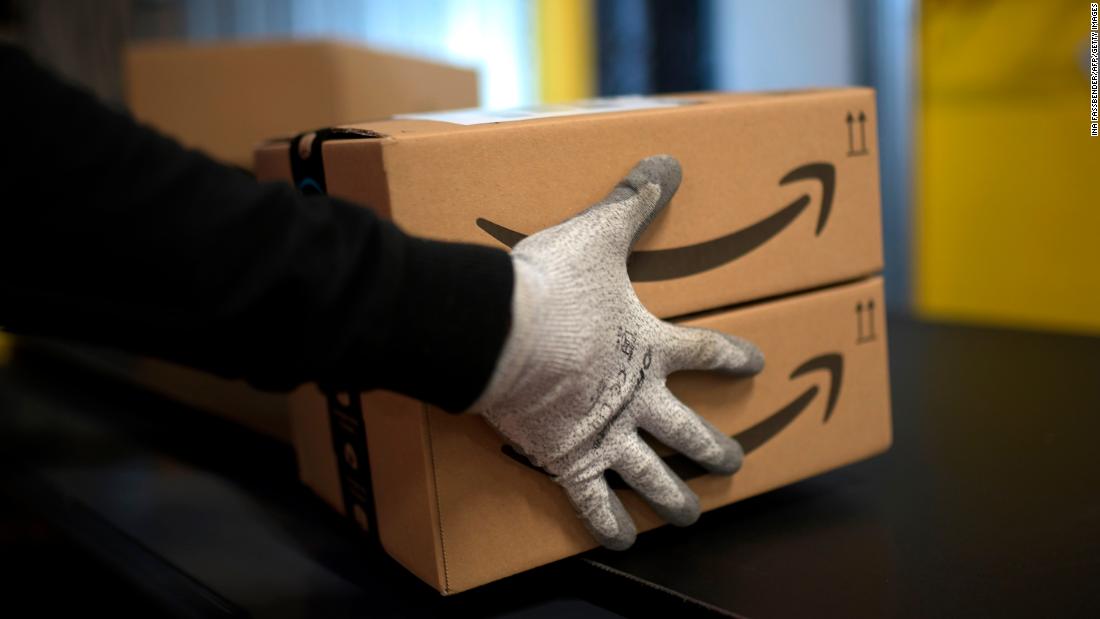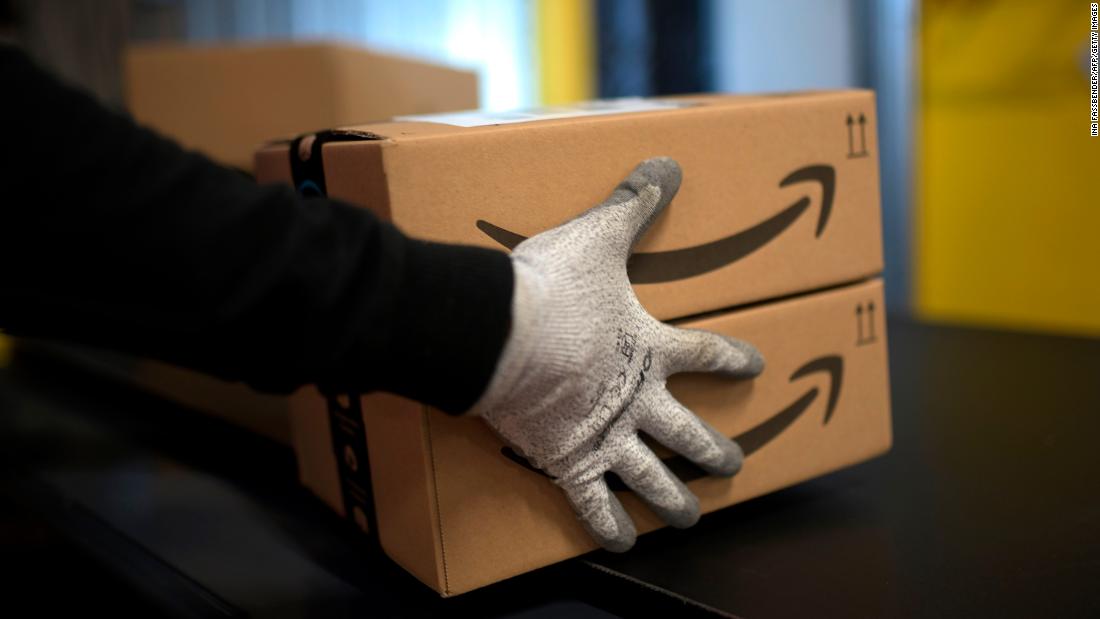[ad_1]

“Nothing is more important than the health and safety of our teams,” an Amazon spokesperson told CNN Business on Friday. “To date, we’ve made over 150 significant process changes at sites around the world to ensure the health and safety of our teams.”
For customers who may feel uneasy about these workplace issues but are desperate for household goods, there are a range of options to shop more consciously, from avoiding unnecessary purchases on the platform and tipping Amazon’s grocery delivery workers handsomely to buying more from local stores online. But there are conflicting views on whether the best way to be an ethical shopper at this moment means not shopping from Amazon at all, especially given its position as one of the biggest hirers during a severe labor market crunch.
“If people choose to work at Amazon, we should respect their decisions,” said Peter Singer, an ethics professor at Princeton University and author of “The Most Good You Can Do: How Effective Altruism Is Changing Ideas About Living Ethically.”
“If you want to practice real social distancing, stop pressing the buy button,” Smalls told CNN Business. “You’ll be saving lives. I understand that people need groceries and certain items, depending where you live, are limited. But people are buying things they don’t need and it’s putting workers’ health at risk.”
Although the issue is complex, shoppers who decide to continue using Amazon, or any online delivery platform, can keep a few best practices in mind.
Only buy the essentials
The most important thing customers can do right now is not give in to the temptation to panic buy a bunch of unnecessary items just because it’s easy to do.
An Amazon spokesperson told CNN Business it is prioritizing items such as household staples, sanitizers, baby formula and medical supplies.
According to Smalls, a processing assistant at his facility, Amazon shoppers are far from following these guidelines. “We sent out so many non-essential items; things like video games, [sex toys] and Amazon Echos,” he said. “It was really frustrating. Boxes don’t magically just show up on doorsteps. People don’t realize what happens behind the scenes to get them to you.”
Bulk buying doesn’t help, but no-rush deliveries might
Even conscientious consumers who want to be disciplined about what they order from Amazon, with an eye toward picking a mix of products that are easier for warehouse workers to handle, may have trouble.
According to Smalls, it’s nearly impossible for a shopper to control what happens inside the warehouse when they place an order. Items are not necessarily organized by certain categories, like they are in a grocery store. That means just because you order a few similar items or a bunch of products at one time doesn’t mean it’ll be any easier on the backend — or that they’ll even ship together.
An Amazon spokesperson confirmed this process to CNN Business, noting it implemented a “random stow and pick” approach about 15 years ago. At the time, it was considered counter-intuitive to how warehouses were traditionally run — for example, toys are not stored with other toys; books are not with other books. But the company said its system has proved efficient over the years and saves its associates time.
Smalls said it doesn’t matter if you order one thing or 17,000 items because it goes through the same process; from receiving to packing to sortation and other buildings. “You’re still putting people at risk,” he said. “One product touches about seven people before it ever gets to your home.”
Perhaps one of the easiest ways shoppers can alleviate some of the stress at warehouses is to choose no-rush delivery. Amazon is incentivizing shoppers to delay arrival dates for digital credits that are redeemable for Amazon Prime downloads, e-books and audio books, and other offerings.
A little kindness can go a long way
Beyond evaluating your spending habits, Patricia Campos Medina, a worker rights advocate and co-director of the Union Leadership Institute at Cornell University, said shoppers can write to governments, which are relying on groups like warehouse employees to keep the economy afloat, demanding workers have the right supplies and equipment to stay protected.
“This is a powerful time for consumers to make a change by demanding how certain workers are treated,” she said. “If Amazon warehouse workers get sick, we will never flatten the curve. If we don’t take care of everyone, we are not taking care of ourselves.”
She also encouraged people to write to Amazon and ask for a broader policy to receive items in one package versus multiple shipments. Sometimes you can request to lump shipments together at checkout; sometimes you cannot.
And for those who continue to shop at Amazon, a little can go a long way in making a meaningful improvement to a delivery person’s job.
“I’d encourage people to set up hand sanitizer and wipes by your front step,” Rajendra said. “Delivery people don’t typically have access to these things, and they can wash their hands outside. It’s also a great time to leave snacks, water and a note saying how much you appreciate them.”
[ad_2]
Source link

